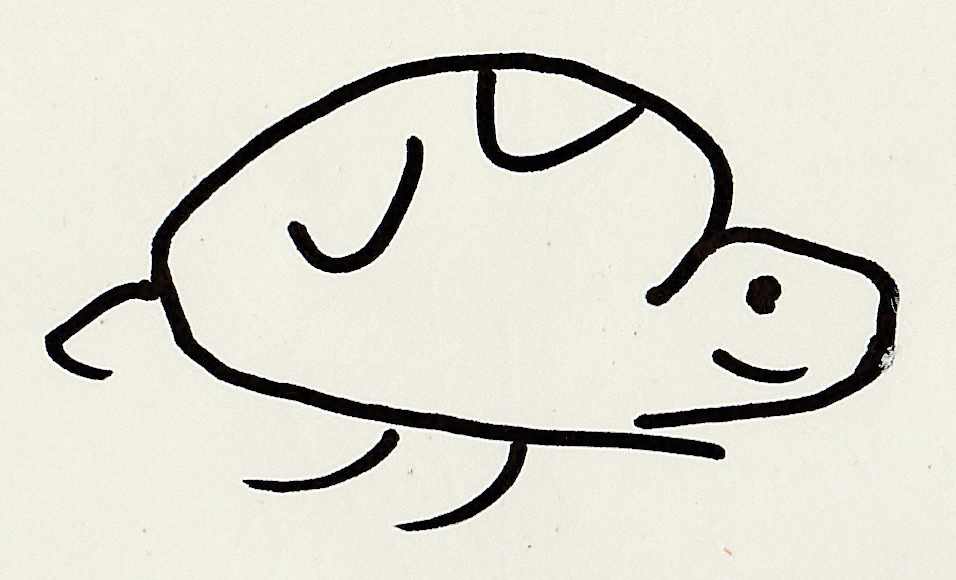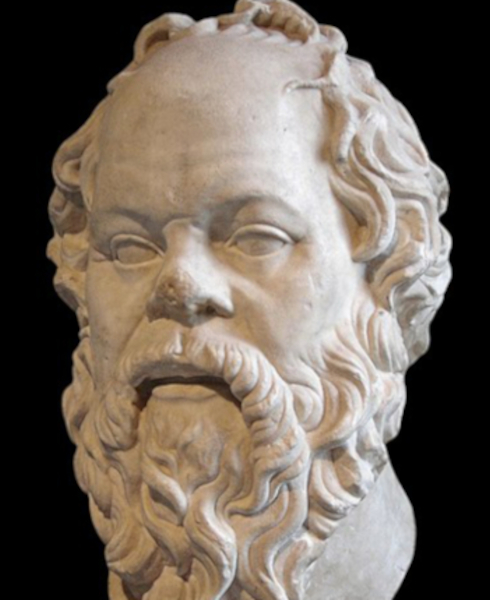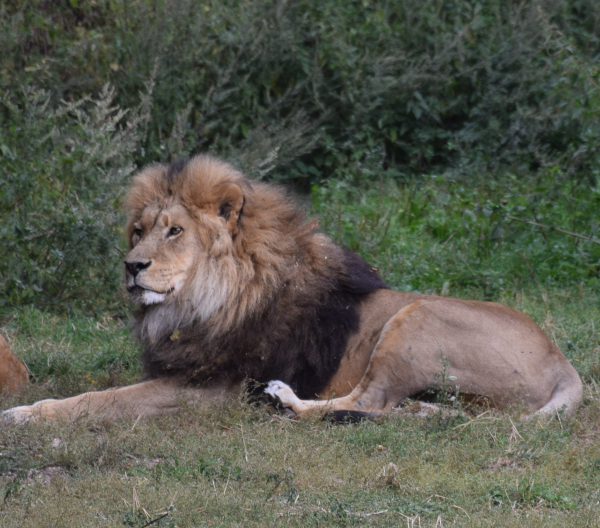Blog
As may be expected of a blog, it is an ongoing affair. For the moment, we publish here three types of texts that suit the definition of a blog.
- in English: texts that Touché and Guy post with a certain regularity at LinkedIn.
- in Portuguese: contributions of Touché to our company website on LinkedIn, and some of her older posts on Brasil com Z, a blog by expat Brazilians about the countries they emigrated to. The cooperation stopped some time ago, but Touché's texts are still interesting.
- in Portuguese, Dutch, English and even French: whenever we travel, we send newsletters to friends in several countries. At first, these messages appeared only in Portuguese, later a Dutch version was added, and in 2016 we were crazy enough to add a French and an English newsletter during our stays in New Zealand/Australia and Costa Rica. We will progressively post some of these travelogues, going back in time.
Note: the latest post is at the top. Use the menu at left or scroll down for older messages.
Touché at LinkedIn in 2023-2
Socrates Lives!
Cultural heritage is a benefit left by anyone who created something worth such a designation. Throughout history ideas have been developed and become part of the treasures left for the forthcoming generations and there is great probability that really creative people are not even aware of their geniality and the importance of their findings while investigating new senses and meanings for what surrounds our human life and the universe around us.
In modern times the search for fame and glory and the constant competition among different members of diverse communities brought new reasons for researches in all fields, be it science, humanity, adventure, art... you just name it. There´s a whole ´prize industry´ promoting names and offering awards and many original projects get lost in this puzzle where ´quality´ loses importance as long as what is presented is praised by the media.
Well, not much can be done here. We live our times as they are, a circle where our talents are limited by frames beyond our control and determine what we have as materials and instruments accessible to foster our creativity. However, it is exactly the fact that we are ´imprisoned´ in each era that can serve as propulsion to look further and develop our capacity to discover and keep on finding out what is there waiting to be investigated and – maybe – explained.
Now, let´s think about what curiosity meant in older cultures? Without the present technological resources investigating certainly was much more difficult. As so little could be ´proved´, ignorance prevailed (well... this is a modern trait too…) and the mistrust around studious people and their findings made them vulnerable and under suspicion in societies where any ´creator´ would need a mighty protector to have some tranquility to dive in new worlds. Such power game required loyalty and obedience to the ones who decided what could be done and why. Hard life of scientists! (well, again... not long ago did they have to fight against powerful ignorants who boycotted the research for a vaccine against covid-19, etc., etc.). Better think about what curiosity has always meant. Period.
Some fields of knowledge remain basically untouched, though. Philosophy is one of them. What was said by wise men millennia and centuries ago is reference to what is taken as revelation of the fundaments of the human way to think, act, interact, create and share knowledge. Masters and disciples have always existed. The need to understand what humanity means and what is the objective of life have always challenged us. We still look for ourselves and try to attribute significance to our passage on the planet.
Nowadays technology opens possibilities to ´philosophize´ in other ways but old wisdom is never to be dis-considered even if the various modalities of AI do not leave much room for ´just thinking´ as it was. Now the machines ´interact´ with you and be happy if your ideas are of any value because human-natural intelligence can always be questioned while artificial ´intelligence´ is to be taken as the quintessence of what humans have collected and learned through time.
How can businessmen benefit? How to be successful? A good idea: use Greek philosophers as your partners! They have a strong reputation for building new parameters, creating and launching ideas and you have the twist-touch to make their words be applied to whatever you want to sell. Take as example the modern geniuses who refer to Socrates almost as an ex-colleague from the kindergarten. Not hard to find who these entrepreneurs are...
To wonder what would Socrates think of the idea...
Inter-Viewing
Maybe the idea/concept is so old that it might have become ´worn-out´. Not much thinking about what interviewing could mean besides having someone answering and replying to questions made by other(s). Period.
Why should somebody be the focus of such an attention? Wow, that is a point. In principle the interviewed demonstrated some special talent or exactly the opposite, this person proved to be a total idiot among so many smarties. Anyway, there is a basic concept of extreme... something. Basically this something points at THE different, having as basic parameter the ´normal´ (not unusual nor extraordinary) life.
n general, proposing somebody to be interviewed means a recognition of what is this difference and the impact it causes on a specific group – the bigger the better. Thus, for most this is good and important, and only those who reached the very top ´dare´ refuse being interviewed, what gives them even more attractiveness interviewingly speaking.
Now, here´s the thing: in an ideal situation, this is a well-succeeded conversation, in a specific framework where the one(s) asking, put(s) questions that reveal facts that are of common interest to the public and the one (in general it's one) answering supplies info that is rich in content and preferably also humor, and the touch of secrecy always contributes to make the interview really interesting and unique.
So this is not simply a question-answer game but a dialogue that requests knowledge and objectivity from the interviewer in the first place. Knowing what to ask and how to approach a subject in order to get to know more and better explanations goes much further than graduating in journalism. Elements like empathy, calm, leaving space to the interviewed to express him/herself without being ´controlled´ and listening attentively play a crucial role here. Call it generosity?
Maybe even more than the interviewed those who ask are responsible for what may be defined as ´a good interview´.
A suggestion: when planning to interview someone, take a good look at the mirror first and ask: Am I fit for this job? Maybe you are. And... maybe you are not. Who knows? Mirrors use to be excellent advisors. Use one.
Call a Spade a Spade
Online events have been a source for what we can call ´mistaken identity´. You read about conferences, workshops, debates, courses and so on and many of those attractive announcements come with a very special label: free. That means, you just subscribe to the site informing what´s programmed and voilà, you can participate at no financial cost. You are glad to have the opportunity to learn and discuss subjects that are important for you. The online activities make it even greater as you don´t need to move from your computer chair. No traffic stress, just sit, watch and participate. For free.
This system could be rated as nothing but excellent considering all the advantages it offers to those who have access to internet and this number increases every day. In many countries it sounds almost surrealistic when you mention a world where people lived without computers, mobile phones and internet. Thus, advertising just anything via internet (through any channel of social media) is default for any successful project, product or... event.
But often you subscribe for an event, block your agenda, change appointments and prepare yourself to receive and share information that is meaningful to you and then you come to the conclusion that what was announced has nothing – or very little – to do with the subject you were ready to watch and this is not pleasant at all. Much frustration and disappointment can be avoided if those organizing an event are honest and clear about their intentions. Sadly enough humanitarian themes are often used as baits. While reality points to wars, hunger, unemployment, lack of basic medical assistance, refugee camps, abandoned children and other tragedies that are used as substrate for what is presented, when speakers start exposing and exchanging their ideas the predominance of their words is ´how to make good money out of this´. And you were looking for alternatives to help people...
We don´t need lies. In fact we have enough of lies. To those who do not mean to try and find solutions to eliminate human disrespect, here's a question:
Could you call a spade a spade? Something like: Go for your money instead of go for human rights.
At least it would save our time.
Choose Your Boss
All around the world most of us work in order to have the financial means to afford paying all types of bills. Some of us work for idealistic reasons, what demands having enough resources that grant the payment of all types of bills. There are those who work for hobby and this also demands having enough resources that grant the payment of all types of bills. Finally, there is a number of people who are workaholics and will always find reasons to work and never stop work because this is what keeps them going. Here we focus on the majority of people. Millionaires definitely are not the majority and most of them do not care for ´work´ but for the power it brings over their employees.
Among the multitude of working people there are those who find the magic formula: they get paid to do what they like doing. This is called a worthy job and it combines all elements that should be part of any work: it happens in healthy environments, it offers the possibility for personal development, it has to do with people´s talents and preferences, it is decently paid and, most important, those who do it are treated with respect and dignity. Unfortunately not the majority of working people live this situation... and there are well-known reasons for that. When someone needs a job to receive a salary in order to be able to fill the refrigerator there is not much room to bargain.
However... well there is a however. Competence, honesty, reliability are invaluable components of any job-seeking. Five-star CVs can´t match these qualities and anyone who is really responsible and open to learn will get better opportunities in the work market. A good reputation will always speak louder than titles and diplomas and this applies to all working people anywhere.
Now... what about the bosses? How come that most people in command positions do not translate quality as professionals? Why is it that most bosses are not humanly competent to lead their staff? Not necessarily millionaires are bad bosses, maybe because they do not need the money. Maybe the really bad bosses are those who are trying ´to get there´ at any cost. And any cost means the cost of lives of those working in lower positions.
Well, here is the thing: you do not want a bad boss. You do not need to work for a company where disrespectful people occupy leading positions. Do your job well and do not accept less than you deserve. Some CEO´s are shameful people and dare treat their employees with irony and even contempt. Don´t waste your talents: you can do better with your knowledge, experience and competence.
Choose a good boss. This is your right. You are entitled to have a good boss. Don´t give up your right.
Dyscalculia & Dyslexia
In times when so many new ways of learning are subject of discussion due to technologies like ChatGPT maybe we should try to have a better understanding about these two learning disorders which so far can not be avoided by the use of AI or any other resource. No matter how we use the computer we still need to be able to use our brains... (at least for the time being) what means being able to identify, accept and adapt our personal limits to avoid becoming frustrated and demotivated when our human intelligence does not reach the ideal efficiency. Accessibility to internet is not – yet – a worldwide fact and it is natural that we would like to perform well in different fields of knowledge even if just at basic levels.
All through History the abilities to calculate and read/write have been of crucial importance in any culture and the development of those was highly dependent on the existence of codes to translate ideas, emotions and projects. Smoke signs, carvings, drawings, alphabets, no matter when and where people always needed and valued those who knew how to communicate and lead communities to new activities and discoveries that would contribute to better ways of living. Of course power has been linked to the possession of knowledge and in order to exercise power kings and rulers of all times need to have experts in diverse areas around them. Sometimes wisdom and knowledge come together. Not necessarily, but it may happen.
However even if education has been – and still is – privilege of minorities, it is certain that despite social advantages children all over the world have been facing difficulties through their learning process without counting on support from teachers and family. The general ignorance about problems related to reading and writing as well as arithmetic and basic notions of mathematics in many cases led to discrimination causing moral pain and social exclusion that impacted and blocked the future of many kids.
Over time scientists and researchers started to study these disorders, identifying and assessing causes and consequences. Dyslexia was clinically described by the physician Oswald Berkhan in 1881 and just two years later the term was coined by the ophthalmologist Rudolf Berlin, both German scientists. But Dyscalculia took much longer to be recognized by researchers and the term was only coined in the 1940´s and waited until 1974 to be completely recognized by the work of the Czechoslovakian Ladislav Kosc. It seems strange that such a long time has passed between the identification and treatments of these two disorders as both are closely linked to learning difficulties.
Dyslexia: The British Dyslexia Association defines dyslexia as "a learning difficulty that primarily affects the skills involved in accurate and fluent word reading and spelling" and is characterized by "difficulties in phonological awareness, verbal memory and verbal processing speed" (source: Wikipedia). Phonological awareness relates to the capacity to identify and remember sounds of diverse languages making oral communication possible. More and more special teaching methods have been introduced to offer educators the necessary support to work with dyslexic children at school-age. It may happen that these children move to adolescence and adulthood without having their problems solved in their early age so they will tend to read more slowly and perform worse in comparison to others without a learning difficulty during childhood.
Dyscalculia: Term created from the Greek prefix ´dys´ (´badly`) and ´calculia´ from the Latin ´calculare´ (´to calculate/count´), cognitive disabilities specific to mathematics were originally identified in case studies with patients who experienced these disabilities as a result of damage to specific regions of the brain.
In the same way individuals of diverse age groups experience difficulties to learn how to deal with letters, disabilities regarding manipulating numbers, performing mathematical calculations and learning facts in mathematics also exist since early school years and a countless number of children have suffered the same sort of social exclusion as those diagnosed with dyslexia.
Nowadays the term is often used to refer specifically to the inability to perform arithmetic operations, but is also defined by some educational professionals and cognitive psychologists as a more fundamental inability to conceptualize numbers as abstract concepts of comparative quantities (a deficit in ´number sense´). But not only: here some other symptoms already identified: delay of simple counting, inability to memorize simple arithmetic facts such as adding subtracting, etc, and some difficulties on a day-to-day basis, like struggling with directions due to reduced spatial orientation, low spatial awareness, difficulties reading maps and following directions and/or with controlling finances.
Taking into consideration that studies and findings about dyscalculia are recent, it is most probably that you or someone you know is dyscalculic and still unaware of it. Maybe we should try and exercise more patience with those who don´t know where they are, can´t find the right directions and are unable to control their expenses…? Who knows, maybe you are talking about (or with) intelligent people who happen to be innocent dyscalculics...?
Open to discussion.
Norwegian Tunnel
There was a time when easy riding meant having the type of travel any adventure fan would love. Following the intuition, driving around unsuspected curves that led to surprises that might be a lovely village, a lake, a field full of flowers or relaxed cows.
Sometimes you had an objective, a place you wanted to see... but mostly it was just the fun of being on the roads, looking at exciting nature and clicking here and there in an attempt to freeze that beautiful view and keep it in a reliable memory outside ours, because our human memory is so limited... as we are.
Norway is one of the most generous countries for those who love this type of trips. Its strong and difficult geography demands an open mind and a high sense of curiosity. The intensity of the colors, the variety of the landscapes where dark rocks plunge into deep blue waters, the power of Mother Nature calling and offering indescribable emotions, this is a place to experience and learn about people who are not afraid of challenges. Living in such a hard environment they gave hands to each other and built a society for everyone, where all can live and not only survive.
Having known poverty, it was from nature that they became a rich country when they found oil in their soil. Oil brought access to comfort but did not erase their knowledge about how to build their own houses, to care for their animals, to plant and share their food. Vanity and idleness remained discarded, no show-off needed to prove the quality of their lives.
Once upon a time easy riding around Norway was one of the most exciting traveling experiences. Times have changed though...
The roads built between a wall of dark rocks and the abyss of seductive light waters are surely still there, waiting and calling. Close your eyes and go back, dive into memories and feel the adventure. Somewhere there is a tunnel waiting for you. Dare and drive through. Just dare.
There are so many tunnels in Norway! Not fancy works of engineering and fashion sparkling lights, radars, signs, all that grants you a kind of Disney fun. No. Besides the basic iron nets to avoid rocks from falling down, most of the time you will only experience that dark world. Norwegian tunnels are what a tunnel really is: a way to get somewhere by crossing through a mountain. A dark hole where you dive and hope there will be light soon. They say there is always light at the end of a tunnel... well you won’t take that for granted when you enter a Norwegian tunnel!
Among so many tunnels, there is one that means more than a passage from light to light. The Lærdal tunnel with its 24,5kms is an endurance test. It takes around 20 minutes at a regular speed (operating speed is 80) to cross it and during this ride you hear spooky noises that can be of heavy invisible trucks or just the voices of historical ghosts. Like spinning objects the sounds of strange machines warn you of unpredictable dangers. Keep driving. Hope the end of this dark moments will come soon. Twenty minutes or twenty years, it can also be twenty centuries... who knows?
---
The Lærdal tunnel is a symbolic representation of our times. Covid-19 threw our fragile means of transportation into a dark world where, like blind beings, we try to identify sounds and guess the right direction to the light. We are riding in the dark in solitude, sticking to our hope for light as a possibility to stay alive until our twenty minutes, days, years or something have passed.
In the meantime we are under the impact of driving inside the depths of a scary and unknown mountain and we know there is no turn to go back.
There is no return in the tunnel of life.
But we know light is there outside.
Somewhere. Sometime.
visit our webpages about us, our travels, et cetera
we thank you for your preference













